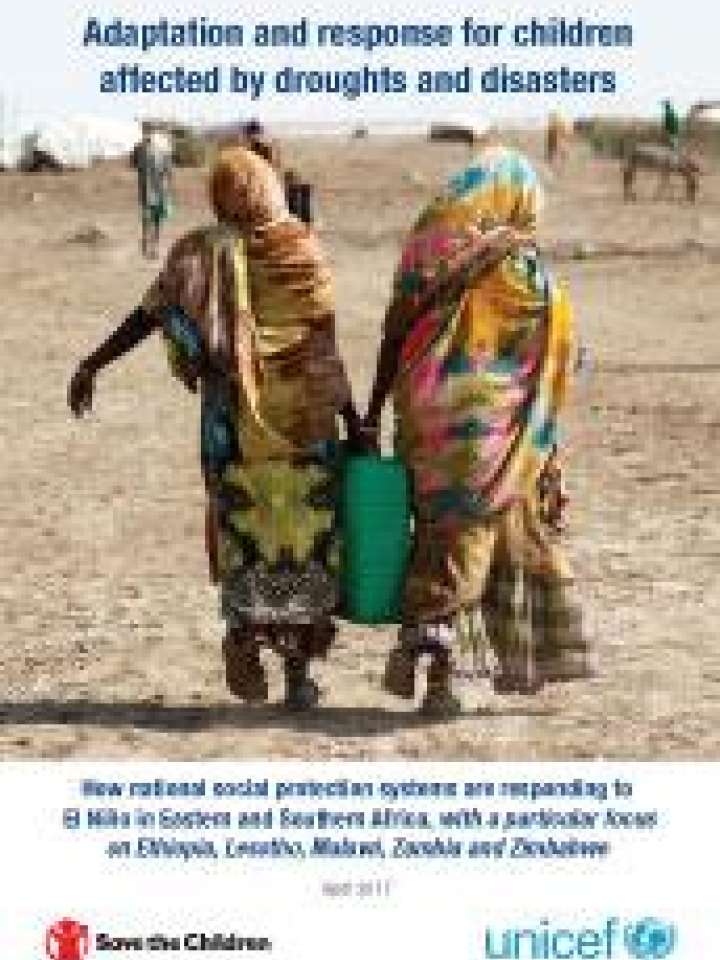Adaptation and response for children affected by droughts: how national social protection systems are responding to El Niño in Eastern and Southern Africa
Weather-related stresses associated with El Niño in 2015–2016 have severely impacted 60 million people. Governments across the globe are dealing with the consequences as they affect food security, livelihoods, and the well-being of their populations. Several of the hardest hit areas are in Eastern and Southern Africa, where drought affects countries already struggling with changing climate and weather patterns and chronic vulnerability, including poverty and food insecurity.
Social protection is a leading strategic response to chronic poverty and vulnerability; its key role in supporting development has been recognized in the Sustainable Development Goals. Social protection systems are proven to be an efficient and cost effective means of reaching the most vulnerable households – a functionality that may be used both as a means to support those living in chronic poverty as well as at times of crisis.
This review was commissioned by UNICEF and Save the Children, with support from FAO, to provide an overview of how national governments and partners in countries in Eastern and Southern Africa are adapting existing social protection systems to respond to shocks. The study looks in particular at how social protection systems support children and families in the context of the El Niño response, with a focus on 5 countries: Ethiopia, Lesotho, Malawi, Zambia and Zimbabwe.
Explore further
